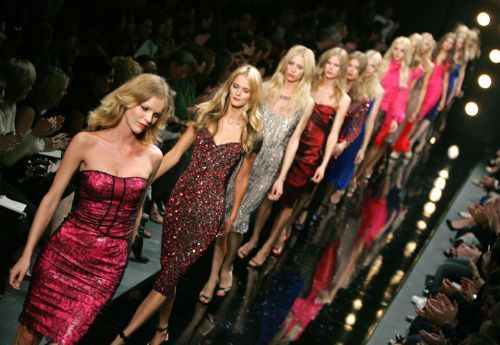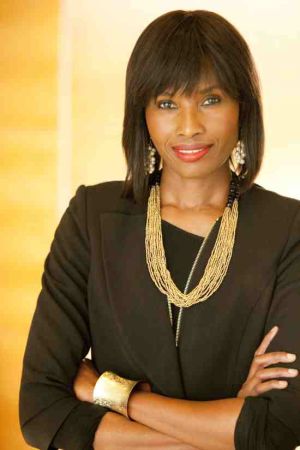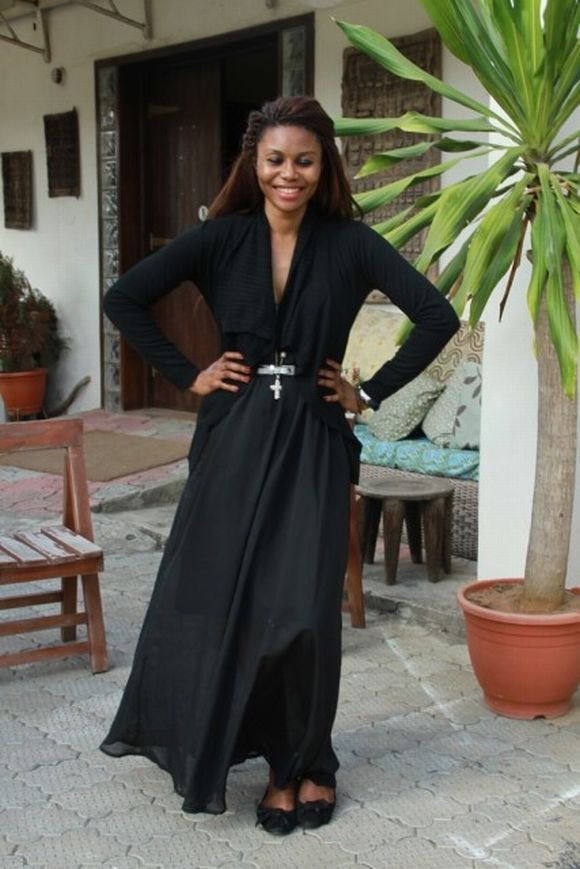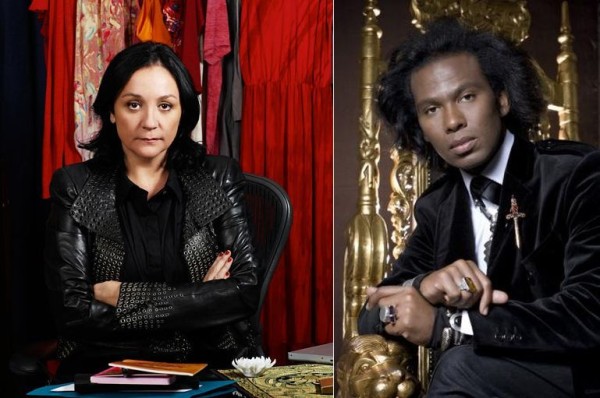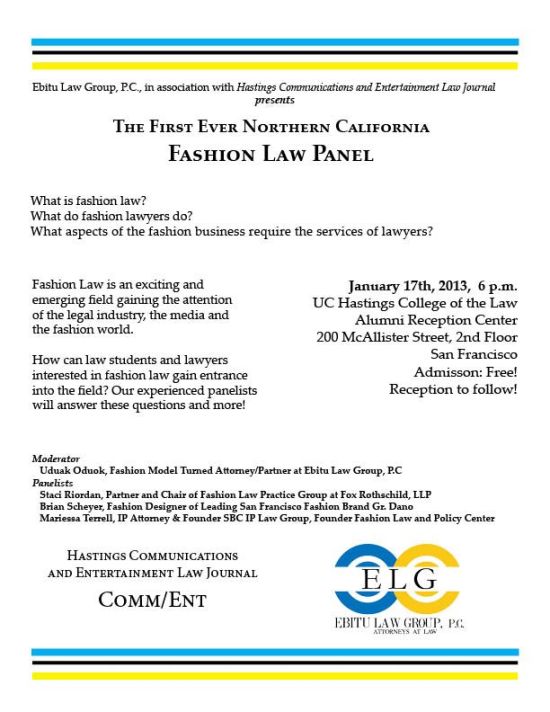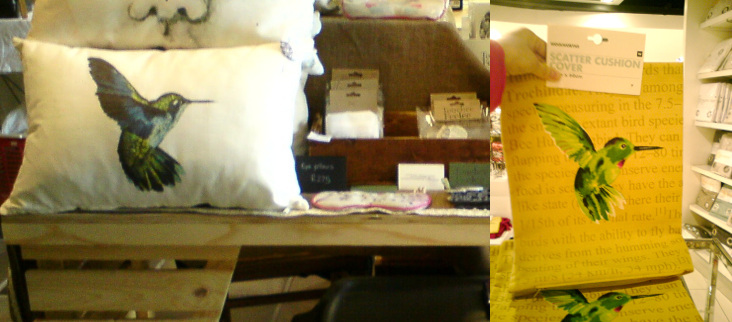 In my introduction on February 3rd, 2012 informing you all about my new column Africa Fashion Law™ on Ladybrille, I went into details on the various ways fashion intersects with law and the need for designers, fashion producers, models and all industry professionals to have a basic understanding of important legal concepts to run a successful business or have successful fashion careers.
In my introduction on February 3rd, 2012 informing you all about my new column Africa Fashion Law™ on Ladybrille, I went into details on the various ways fashion intersects with law and the need for designers, fashion producers, models and all industry professionals to have a basic understanding of important legal concepts to run a successful business or have successful fashion careers.
This week, my point is underscored in a Reuters article by Erin Geiger Smith. The article also quotes my fashion law colleague Susan Scafidi rather extensively. The Fashion Law movement within the USA is a very small movement. But, we are gaining momentum and it is spreading. Susan Scafidi is the brain behind the first ever Fashion Law Institute in the world at Fordham School of Law. It has the support of the CFDA.
Read excerpt of the article below because it further summarizes some of the things I will discuss with you here on Ladybrille.
 “(Reuters) – Behind the scenes of New York Fashion Week, reams of legal contracts bind together designers, models, hair and make-up artists, photographers, stagehands, lighting technicians and even celebrities flaunting their clothes.
“(Reuters) – Behind the scenes of New York Fashion Week, reams of legal contracts bind together designers, models, hair and make-up artists, photographers, stagehands, lighting technicians and even celebrities flaunting their clothes.
These days fashion contracts can range from a premium price of up to $65,000 to rent the main runway at Lincoln Center where the top designers tend to show, to a smaller designer’s DJ contract including a clause that the DJ must have the right to publicly broadcast the music they pump out during the show.
“No one ever sees all of the business and legal work that goes into creating these shows,” Susan Scafidi, director of Fordham Law School’s Fashion Institute, said. “There are reams of contracts that have to happen.”
Below is a peek of the kinds of negotiations that take place in order for each of the 90-plus shows to happen.
THE TENTS: The fashion shows most familiar to the public are those at the IMG event at Lincoln Center, where tent rents range from $16,500 to $65,000. Contracts for these venues are generally non-negotiable, and, like most Fashion Week-related agreements, subject to secrecy. The IMG contract, Scafidi said, “has confidentiality written all over it.”
Some of the standard provisions cover lighting, seating and how long the designer will have access to the tents. Tent contracts also require that literature for each show includes the event’s full name, and that a designer’s sponsors don’t conflict with the week’s official event sponsors. With Diet Pepsi as a sponsor this year, for instance, Diet Coke would likely not be approved.
MODELS: While fees and other details are typically included in a designer’s contract with models, the issue lawyers on both sides worry about most is how the models’ images will be used in advertising, social media and other outlets.
Designers usually want to be able to use the images “in perpetuity.” Models’ representatives try to limit that contract language to a more defined period, typically six months, said Ali Grace, deputy director of business and legal at model management company Wilhelmina International Ltd.
For prominent models, the contracts will be heavily negotiated, often at the last minute. Typically, design houses present their own contracts to the model agency and the agency edits the language and tries to persuade the designer’s representative to agree.
MUSIC RIGHTS: IMG has a contract with the American Society of Composers, Authors and Publishers (ASCAP), the organization that controls music rights. For the fashion shows, ASCAP allows designers to play most artists without worrying about the record companies claiming copyright infringement, said Steve Gordon, an entertainment lawyer who discussed the topic at a panel held at Fordham Law School last week.
Designers who show away from Lincoln Center at smaller spaces such as art galleries need to purchase ASCAP licenses themselves, or ensure any contract with the DJ includes a clause that they have the right to publicly broadcast the music they play. . . ” Full Story on Reuters.
_______________________
Ms. Uduak Oduok is the Founder and Editor-in-Chief of Ladybrille® Magazine. An industry insider with almost two decades of hands on extensive experience in the fashion and entertainment industry, she is also a trial attorney (with 10years experience) and has counseled a range of clients from musicians, models, actors and actresses to designers on numerous areas of the law including contracts, business law, fashion and entertainment law, copyright, trademark i.e. intellectual property law. She can be reached at ([email protected]) to share/pitch your Africa Fashion Law™ related stories with her. All other inquiries, please visit the www.ladybrille.com/contact for appropriate contact email.
Photocredit: MBNYFW
Ms. Uduak is best known as an advocate who uses the tools of media and the law to help creatives and businesses clearly articulate their true brand identities, and communicate it to the world through their products and services, to maximize profits. She is a lawyer, speaker, author, journalist, and recognized thought leader, and trailblazer for her work on Africa’s emerging global fashion and entertainment markets, and the niche practice of fashion law in the United States. She is also the founder and publisher of Ladybrille® Magazine, and an Attorney and Partner at Ebitu Law Group, P.C, where her practice focuses on Fashion, Business, & Entertainment Law and Trials. For more information about her, visit www.msuduak.com.

